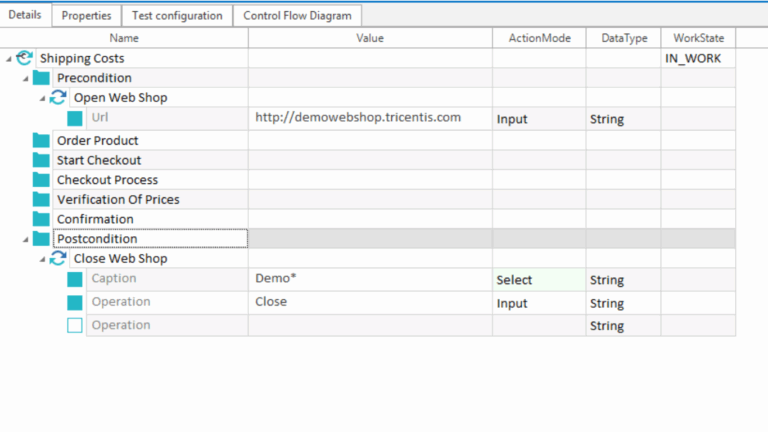Basically, Java will support two selection statements which include: IF statement and switch statement, these statements will allow to control the flow of our program execution which is based upon conditions which are known only during run time.
IF statement:
IF statement is basically the Java’s conditional branch statement which can be used to route the program execution through two different paths.
Syntax for if statement is:
If(condition)
statement1;
else
statement2;
- Each statement will be a single statement or may be compound statement enclosed in the curly braces.
- Condition will be any expression which will return Boolean value
- Else clause is optional
IF statement will work like this: suppose IF condition is true then statement1 will be executed else statement2 will be executed, in the no case will both statements will be executed.
Let us consider an example:
Int a, b;
// …..
If(a<b)
a=0;
Else
b=0;
- if a is less than b then a is set to zero else
- b is set to zero
- in no case both a & b will be set to zero.
2. Nested IF statement:
Nested IF statements are very common in the programming. When we nest IF, main thing to remember is to that else statement will always refer to the nearest or latest IF statement, that is within same block as the else and that is not associated with else.
Let us consider an example:
If ( i == 10)
{
If (j < 20 )
a = b;
If(k > 100)
c = d;
Else
a = c;
}
This indicates final else is not associated with if(j < 20) because its not in the same block, final else will be associated with if(k>100) because its closest to IF within the same block.
SWITCH statement:
SWITCH is the multiway branch statement which provides easy way to dispatch execution to the different parts of our code which is based on the value of an expression.
Syntax of SWITCH statement is:
Switch(expression)
{
Case value1:
// statement sequence
Break;
Case value2:
//statement sequence
Break;
.
.
.
.
Case valueN.
// statement sequence
Break;
Default:
// default statement sequence
}
Expression must be type byte, short, int or char each of the value will be specified in the case statements must be type compatible with the expression, here each case will be unique.
Let us consider an example:
Class simpleswitch
{
Public static void main (string args [])
{
Switch(i)
{
Case 0:
System.out.println(“I is zero”);
Break;
Case 1:
System.out.println(“I is one”);
Break;
Default:
System.out.println(“I is greater than 2”);
}
}
}
Output
I is zero
I is one
I is greater than 2
As we can see each time through the loop the statements will be associated with the case constant which will match I are executed rest all are bypassed.After I is greater than 2 no case statement I are executed
Questions:
- What is selection statement?
- Explain IF statement with program
- Explain SWITCH statement with program






























7 Responses
What is selection statement?
The selection statements are used to select a part of the program to be executed based on condition
Explain IF statement with program
1.IF statement is basically the Java’s conditional branch statement which can be used to route the program execution through two different paths.
2.Each statement will be a single statement or may be compound statement enclosed in the curly braces.
3.Condition will be any expression which will return Boolean value
Else clause is optional
IF statement will work like this: suppose IF condition is true then statement1 will be executed else statement2 will be executed, in the no case will both statements will be executed.
Let us consider an example:
Int a, b;
// …..
If(a<b)
a=0;
Else
b=0;
if a is less than b then a is set to zero else
b is set to zero
in no case both a & b will be set to zero.
Explain SWITCH statement with program
SWITCH is the multiway branch statement which provides easy way to dispatch execution to the different parts of our code which is based on the value of an expression.
Expression must be type byte, short, int or char each of the value will be specified in the case statements must be type compatible with the expression, here each case will be unique.
Let us consider an example:
Class simpleswitch
{
Public static void main (string args [])
{
Switch(i)
{
Case 0:
System.out.println(“I is zero”);
Break;
Case 1:
System.out.println(“I is one”);
Break;
Default:
System.out.println(“I is greater than 2”);
}
}
}
Output
I is zero
I is one
I is greater than 2
As we can see each time through the loop the statements will be associated with the case constant which will match I are executed rest all are bypassed.After I is greater than 2 no case statement I are executed
What is selection statement?
The selection statements are used to select a part of the program to be executed based on condition
Explain IF statement with program
1.IF statement is basically the Java’s conditional branch statement which can be used to route the program execution through two different paths.
2.Each statement will be a single statement or may be compound statement enclosed in the curly braces.
3.Condition will be any expression which will return Boolean value
Else clause is optional
IF statement will work like this: suppose IF condition is true then statement1 will be executed else statement2 will be executed, in the no case will both statements will be executed.
Let us consider an example:
Int a, b;
// …..
If(a<b)
a=0;
Else
b=0;
if a is less than b then a is set to zero else
b is set to zero
in no case both a & b will be set to zero.
Explain SWITCH statement with program
SWITCH is the multiway branch statement which provides easy way to dispatch execution to the different parts of our code which is based on the value of an expression.
Expression must be type byte, short, int or char each of the value will be specified in the case statements must be type compatible with the expression, here each case will be unique.
Let us consider an example:
Class simpleswitch
{
Public static void main (string args [])
{
Switch(i)
{
Case 0:
System.out.println(“I is zero”);
Break;
Case 1:
System.out.println(“I is one”);
Break;
Default:
System.out.println(“I is greater than 2”);
}
}
}
Output
I is zero
I is one
I is greater than 2
As we can see each time through the loop the statements will be associated with the case constant which will match I are executed rest all are bypassed.After I is greater than 2 no case statement I are executed
1. What is selection statement?
Java will support two selection statements which include: IF statement and switch statement, these statements will allow to control the flow of our program execution which is based upon conditions which are known only during run time.
2.Explain IF statement with program
IF statement is basically the Java’s conditional branch statement which can be used to route the program execution through two different paths.
Syntax for if statement is:
If(condition)
statement1;
else
3.Explain SWITCH statement with program
SWITCH is the multiway branch statement which provides easy way to dispatch execution to the different parts of our code which is based on the value of an expression.
Java selection statements:
Selection statements:
These statements control the flow of execution based on conditions which are known during run time.
IF statement:
1. Each statement will be a single statement or may be compound statement enclosed in the curly braces.
2. Condition will be any expression which will return Boolean value
3. Else clause is optional
For example:
Int a,b;
If(a>b)
a=0;
Else
b=0;
• if a is less than b then a is set to zero else
• b is set to zero
• in no case both a & b will be set to zero.
Switch statement:
SWITCH is the multiway branch statement which provides easy way to dispatch execution to the different parts of our code which is based on the value of an expression.
Basically, Java will support two selection statements which include: IF statement and switch statement, these statements will allow to control the flow of our program execution which is based upon conditions which are known only during run time.
IF statement:
IF statement is basically the Java’s conditional branch statement which can be used to route the program execution through two different paths.
Syntax for if statement is:
If(condition)
statement 1
else
statement2
IF statement will work like this: suppose IF condition is true then statement1 will be executed else statement2 will be executed, in the no case will both statements will be executed.
. Nested IF statement:
Nested IF statements are very common in the programming. When we nest IF, main thing to remember is to that else statement will always refer to the nearest or latest IF statement, that is within same block as the else and that is not associated with else.
SWITCH statement:
SWITCH is the multiway branch statement which provides easy way to dispatch execution to the different parts of our code which is based on the value of an expression.ociated with else.
Basically, Java will support two selection statements which include: IF statement and switch statement, these statements will allow to control the flow of our program execution which is based upon conditions which are known only during run time.
IF statement:
IF statement is basically the Java’s conditional branch statement which can be used to route the program execution through two different paths.
SWITCH statement:
SWITCH is the multiway branch statement which provides easy way to dispatch execution to the different parts of our code which is based on the value of an expression.
Java will support two selection statements which include: IF statement and switch statement, these statements will allow controlling the flow of our program execution which is based upon conditions that are known only during run time.
IF statement:
IF statement is basically Java’s conditional branch statement which can be used to route the program execution through two different paths.
Example of an IF statement:
Int a, b;
// …..
If(a<b)
a=0;
Else
b=0;
if a is less than b then a is set to zero else
b is set to zero
in no case both a & b will be set to zero.
SWITCH statement:
SWITCH is the multiway branch statement that provides an easy way to dispatch execution to the different parts of our code which are based on the value of an expression.
Expression must be type byte, short, int or char each of the values will be specified in the case statements and must be type compatible with the expression, here each case will be unique.
Example of SWITCH statement:
Class simpleswitch
{
Public static void main (string args [])
{
Switch(i)
{
Case 0:
System.out.println(“I is zero”);
Break;
Case 1:
System.out.println(“I is one”);
Break;
Default:
System.out.println(“I is greater than 2”);
}
}
}
Output:
I is zero
I is one
I is greater than 2
As we can see each time through the loop the statements will be associated with the case constant which will match I are executed rest are bypassed. After I is greater than 2 no case statement I is executed.